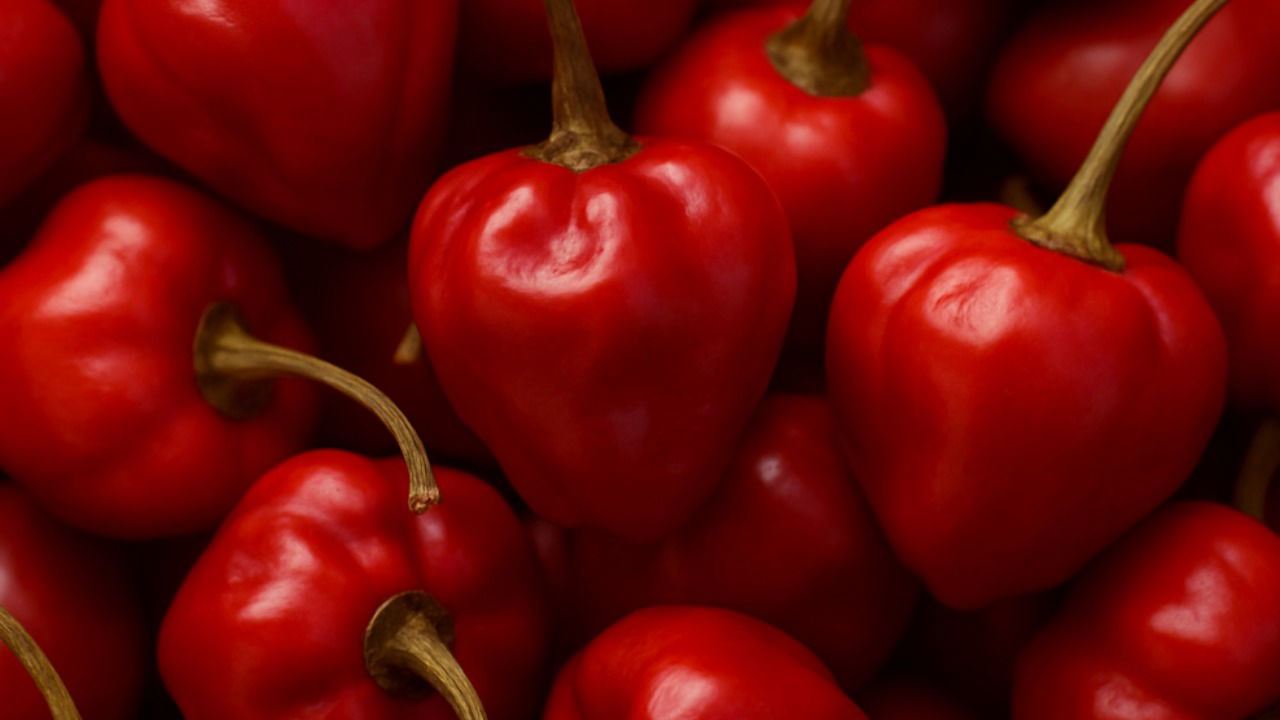
Ramanathapuram district provides semi-arid, low-rainfall which is an ideal conditions for cultivation of traditional types of chillies. Of them, the Mundu and Ramnad Gundu chillies are popular. They are not popular only in regional markets but in India as well, for their pungency, taste, and vibrant red color. For generations, farmers have been cultivating these varieties; some claim that their ancestors grew them for over 200 years.
Ramnad Gundu Chilli: Farmer’s Favorite
Ramnad Gundu, a round, deep red colour chilli variety, is widely grown throughout the Ramnad district. It is preferred by farmers due to the fact that it provides better yields than the samba varieties. Even the name "Gundu" is Tamil for "round," and the name perfectly captures the spherical shape of this beautiful chilli.
This chilli grows well in arid conditions and cannot withstand too much rain. Indeed, too much rain during flowering and fruiting will cut yields severely. That's why Ramnad Gundu chillies are planted in the Tamil months of Aavani or Karthigai (August–November) and harvested in Chithirai or Vaikasi (April–May), exactly at the time of the dry season.
Farmers sow these chillies in open fields and take cotton or coriander as intercrops, depending on soil and season. Apart from optimally utilizing land, intercropping also helps control pests and maintain soil health. A farmer receives approximately 1000 kg per acre, which is roughly 50 bags (with a bag of weight 20 kg). The cultivation cost works out to be approximately Rs. 10,000 per acre, while the return could be as much as Rs. 30,000 per acre. This gives this crop a very attractive return for marginal and small farmers.
Ramnad Mundu Chilli: A GI-Tagged Chilli from Tamil Nadu
Though the Gundu chilli is preferred for yield, the Ramnad Mundu chilli is better known at the national recognition for its taste, flavour, and cultural status. "Mundu" in Tamil means plump and round. This type falls under Capsicum annuum and has been cultivated in areas such as Tiruvadanai, RS Mangalam, Mudukulathur, Kadaladi, and Kamuthi taluks for more than two centuries.
Ramnad Mundu chillies are not just a common name at home in Tamil kitchens but are also a top choice among cooks and food processing units. These chillies possess a pungent smell, rich red colour, and soft pungency, which renders them suitable for curries, pickles, and even spice powders. In fact, their rich color renders them as a natural colouring agent.
Ramnad Mundu chilli was granted the Geographical Indication (GI) tag by the Government of India in 2023. This implies that only chillies produced in this particular area are allowed to be marketed by the name "Ramnad Mundu chilli," and it becomes an exclusive and protected horticulture product. The GI tag allows farmers to receive a better market price and ensure the conservation of this distinct variety for generations to come.
Economics of Growing Ramnad Mundu Chillies
Ramnad Mundu chillies need more investment compared to the Gundu variety, but also generate more returns. Based on a study carried out in 2019-20, cultivation cost per hectare was approximately Rs. 84,550. The average net return of farmers per hectare was Rs. 55,450, and the benefit-cost ratio (BCR) was 1.65. That is, for every Rs. 1 of expenditure, farmers received Rs. 1.65 which is a good return in agriculture.
The crop is grown primarily under rainfed conditions, but the farmers use irrigation if water resources are available. The cultivation involves planning carefully, particularly during the flowering stage since weather conditions affect the success of the crop significantly. Farmers also market their chillies to traders, processors, and exporters based in the region, creating a chain that bridges rural fields with international markets.
Preserving Tradition, Securing Livelihoods
Ramnad Gundu and Mundu chillies are not only agricultural crops, they belong to Tamil Nadu's farming heritage. For rural farming families like theirs in Ramanathapuram, such chillies symbolize something greater than money. It is pride, tradition, and identity. As with evolving climate and market patterns, it is only necessary to keep these indigenous varieties safe and cultivate them.
The GI status of Ramnad Mundu chilli and the high market demand for both varieties provide a golden opportunity for farmers to enhance their revenues with minimal loss of their traditional practices. Following a quality strategy, adopting organic inputs, and diversifying into value-added products such as chilli powder and pickles, farmers can reach the premium market in both India and the world at large.
Ramnad Gundu and Mundu chillies are examples of traditional crops that continue to be both sustainable and economically viable. When cultivated under suitable conditions—with proper weather, timing, and harvesting techniques—these chillies can yield well and fetch good prices in the market. Native to the region and deeply tied to the agricultural practices of Tamil Nadu, especially in Ramanathapuram, these varieties remain significant to local farmers and are gaining broader recognition beyond their place of origin.
















